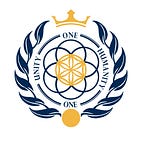BLOCKCHAIN WEDNESDAY: Week 12.09–19.09
Asgardia aims to keep an eye on the many ways blockchain technology has the power to better our society as this can help better our future space nation. Thus, every Wednesday we look at the ways blockchain technology is disrupting various industries and bettering our society.
For example, the United Nations Refugee Agency has recently reported that the death toll among refugees crossing over to Europe is on the rise: for every 18 people, one person has died — double the number for the previous year. In the United States, the number of immigration arrests have increased by 30% from 2016 to 2017. Cointelegraph asks the question: can refugee migration crisis be helped by decentralization technologies? In its recent article, the answer is yes.
Finland has been the first so far to use blockchain to help refugees. The Finish Immigration Service sets up refugees with a full analogue of a bank account, handing out credit cards instead of traditional cash payments. A public database supported by a decentralized network helps the Finnish government keep track of the cardholders and their movements. And for the refugees, the account is an identification and banking tool that is available from the outset.
Another example is Energi Mine a U.K.- based blockchain company who revealed a big partnership in August. In fact, the company stated that for each week of the month they would be announcing a new partnership. Why? Mostly because of the state of the energy blockchain market.
Early innovators like Energi Mine, which rewards users for saving energy, have money to spend as a result of successful initial coin offerings (ICO). Thus, they must now show that they mean business because more companies like it are crowding the market.
Seeing as blockchain platforms take time to perfect, it’s crucial to find third parties that can help each startup develop proof-of-concept projects and build momentum in the market.
One new project is being built by MasterCard. The Global payment service provider has designed a blockchain-based system to simplify high-volume business-to-business (B2B) transactions and help fix an outdated system.
MasterCard filed three patent applications in March, which outline their invention. The patents were published last week by the US Patent and Trademark Office (USPTO).
In the similar yet separate patents, all titled “Method and System for Recording Point to Point Transaction Processing,” MasterCard stated that existing B2B settlement systems require an update to cater to the needs of today’s business environment. The patents’ authors also explain that the present systems often operate using individual payment transactions as a critical component of the settlement process.
Furthermore, community-based monitoring is now being coupled with the security of blockchain technology in Atlantic Canada as a way to safeguard the health of freshwater. In 2017, World Wildlife Fund Canada conducted a Watershed Report that found there were widespread data deficiencies, with two-thirds of Canada’s sub-watersheds data deficient for health indicators. This presents an obstacle for an informed understanding of the human impact in most watersheds.
Although communities and stewardship organizations across Atlantic Canada have long-used sophisticated monitoring programs until now, they did not have an accessible and secure place to share their data.
This is an interesting development for Asgardia as they keep an eye on the ways blockchain technology could better the future space nation.
Lastly, according to new research from the World Economic Forum (WEF), there are more than 65 ways blockchain technology can be implemented to address some of the most pressing environmental challenges facing planet Earth.
Since Asgardia as the goal of protecting Earth from space threats, this research could prove useful.
As stated in a press release, the insight study, performed in conjunction with auditing giant PwC and recently unveiled at the Global Climate Action Summit, studies how new international platforms could incubate responsible blockchain ecosystems.
Networks of this kind could vary from decentralizing management of natural resources including energy and water to creating supply chains that help promote greater sustainability. They could also offer new avenues for funding and raising the vast sums of money expected to be needed in order to deliver low-carbon and sustainable economic growth, according to the press release.
If you’re interested in blockchain technology and improving our world then join Asgardia today and network with businesses, innovators, and forward-looking people.
Read more on Asgardia.Space
